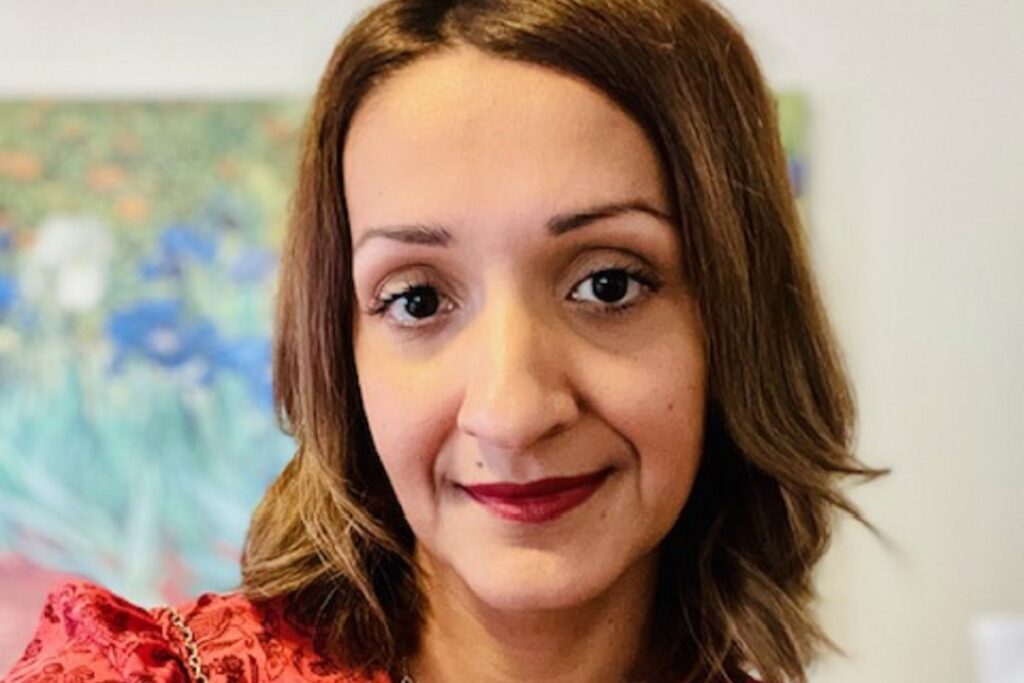Growing up, Balveen Ajimal watched her mother suffer with heavy periods and extreme pain, stemming from a diagnosis of endometriosis.
While this gave her some prior knowledge and vocabulary of the debilitating disease, It still took a number of years before Ajimal’s own symptoms of excessive bleeding and pain were diagnosed as the same thing.
“I think there was probably a lack of information about how young endometriosis can impact on girls and young women, Ajimal tells Women’s Agenda’s on the It Takes Boobs podcast, a conversations initiative in partnership with Stella Insurance.
“So my mother probably didn’t equate my symptoms with hers because, in her information set that she received or had access to at the time, endometriosis was something that only impacted mature women or perhaps women of childbearing age.”
Endometriosis can affect a person at their first menstrual period and is a disease in which tissue similar to the lining of the uterus grows outside the uterus. The severe inflammatory condition can cause frequent intense pelvic pain, fatigue, depression, anxiety and infertility.
In Australia, endometriosis affects at least 1 in 9 women. And according to several studies, women who suffer from the condition wait an average of seven years before they are officially diagnosed.
From 11-years-old, Ajimal was already having heavy and painful periods and didn’t feel able to talk much to anyone about her experience.
Along with being Chief Operating Officer at Cancer Council Queensland, Ajimal is now the Queensland Ambassador for Endometriosis Australia and says working “to normalise discussion around what it means to have a period” has been one of the greatest drivers in her joining the organisation.
Many women and girls are still treated as though their debilitating pain is normal, but Ajimal believes that encouraging open conversations around the subject can make it easier for those with endometriosis to get support.
“I think we have to listen to women, and I think we have to start believing them,” she says.
Reflecting on the lack of support that her own mother likely had while navigating endometriosis, Ajimal says that “a generation back and two generations ago, those conversations would have been really difficult both from a basis of, not just social stigma, but from incorrect facts around fertility, around femininity, around what it means to be a healthy and productive woman.”
Pointing out that at least “half the population of the world has periods”, Ajimal emphasises that there can’t be only one definition of a “normal” period.
“Women are not homogenous groups– just because we are women doesn’t mean we have the same experiences.”
And understanding that women’s experiences vary is especially important when it comes to conversations surrounding fertility.
When Ajimal was first diagnosed with endometriosis, she was told she’d “better have those kids quickly”.
“I was 21 and at the beginning of my legal career. I wasn’t in a relationship. That advice at that age– and it’s been given to kids at younger ages– is just not appropriate,” she says.
“Looking forward, the key is to start discussions young and to be able to use the right vocabulary for the right experience. I think the more women and girls are able to talk openly, without fear and in safe environments about their experiences, and be heard and reflected in [the] research, is critical.”
Far too often, women’s stories of resilience and leadership go untold. And we know that so often, it’s women at the forefront of the brave push for progress. With this new Women’s Agenda podcast series, ‘It Takes Boobs’, supported by Stella Insurance, we’re challenging the typical sexist trope of it “taking balls” to get big things done.


